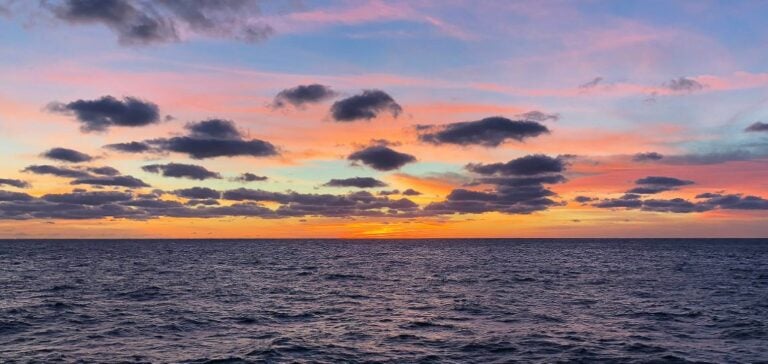From Valparaíso, a symbolic Chilean port city, French President Emmanuel Macron and Chilean President Gabriel Boric unveiled on Thursday the “Call of Valparaíso.” This bilateral initiative aims to strengthen joint efforts to preserve marine ecosystems while addressing global environmental challenges.
The project marks a significant step ahead of the third United Nations Conference on Oceans (UNOC 3), scheduled for June next year in Nice. Emmanuel Macron emphasized that this call seeks to rally the international community around several priorities, including addressing rising sea levels and protecting marine biodiversity. President Boric highlighted the importance of this collaboration to safeguard critical regions like Antarctica.
Combating Illegal Fishing and Green Corridors
One of the main pillars of the call focuses on fighting illegal, unreported, and unregulated fishing, which poses a major threat to marine ecosystems. In his speech, Emmanuel Macron detailed plans to establish more sustainable management of fishery resources.
Additionally, the two leaders discussed the creation of “green corridors” designed to reduce the carbon footprint of trade between French and Chilean ports. This measure is part of a broader strategy to integrate oceans into global decarbonization efforts.
Expanding Marine Protected Areas
The Franco-Chilean initiative also highlights the expansion of marine protected areas (MPAs). Currently insufficient to ensure the preservation of marine habitats, these zones could see significant development through partnerships between nations. France and Chile aim to encourage other countries to adopt similar measures to protect vulnerable marine ecosystems.
A Battle for High Seas Biodiversity
The two presidents also advocated for the swift ratification of the treaty on high seas biodiversity, known as the Biodiversity Beyond National Jurisdiction (BBNJ) agreement. This treaty, adopted by the UN in 2023, still requires ratification by 60 states to come into effect. Chile, one of the first countries to ratify the agreement, and France, which recently followed suit, hope to persuade other nations to join this initiative.
Currently, only about 15 nations have taken this step. The high seas, which fall outside the jurisdiction of any single nation, have long been overlooked in environmental policies but now represent a critical issue for the planet’s future.
Protecting Oceans: A Vital Priority for the Future
Beyond their respective countries, Emmanuel Macron and Gabriel Boric hope to make the “Call of Valparaíso” a model for international cooperation. Protecting the oceans goes beyond safeguarding an ecosystem: it is a necessity for the future of life on Earth. With this commitment, France and Chile aim to set a path for other nations and strengthen global ocean governance.





















